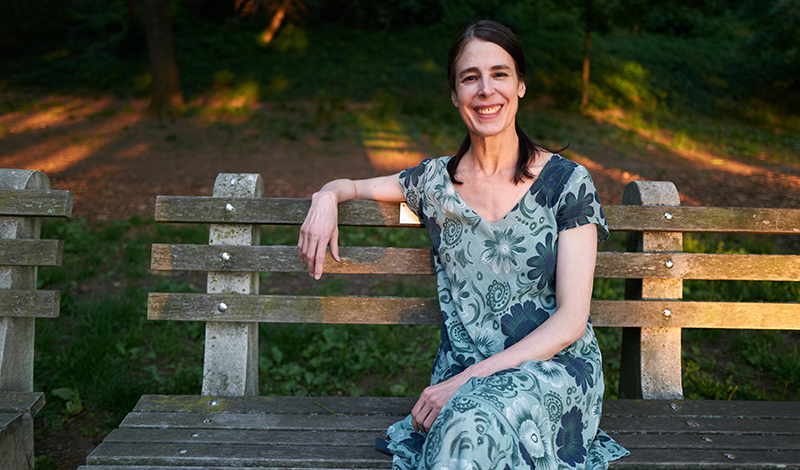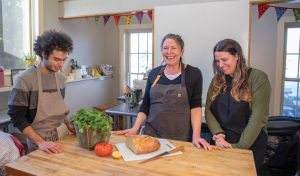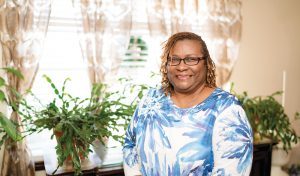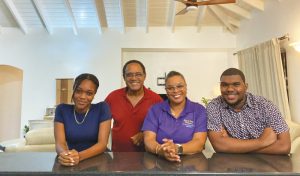by Sheiline McGraw
New York
Last year, a friend of mine recalled a smile I’d given her at a study meeting she’d attended in 2016.
I remembered exactly the smile she mentioned, because my baby niece Catherine had just died. Every action I took at that time, every movement I made, was with this intensely renewed determination to honor Catherine’s brief, brilliant life and transform the grief of her passing into the greatest joy for everyone around me.
In January 2016, after four years of trying for a third child, my sister had gotten pregnant. She, her husband and my two nephews (who are like sons to me), were overjoyed at the news. My sister carried Catherine for almost 36 weeks, nearly full term. But that August, she miscarried. Despite our shock and devastation, I knew deep down that this beautiful being had completed her mission in this existence. I returned immediately to words of Nichiren Daishonin that I’d ingrained in my life during my sister’s pregnancy:
Though one may point at the earth and miss it, though one might bind up the sky, though the tides might cease to ebb and flow and the sun rise in the west, it could never come about that the prayers of the practitioner of the Lotus Sutra would go unanswered. (“On Prayer,” The Writings of Nichiren Daishonin, vol. 1, p. 345)
If you ask people who know me, they will tell you I’ve always been very passionate about sharing Buddhism with others, especially young people. The reason is that I encountered it at 19, a time when I was my own worst enemy. Anorexic and bulimic, I coped with overwhelming anxiety by punishing myself for falling short of an ideal of the person I thought I should be. Imagine the world is beating up on me, and I’m beating up on me—how in the world am I going to win that fight? I had to unite with Sheiline, with myself, had to learn to be my own friend and ally. As I began practicing Buddhism and applying the encouragement of Ikeda Sensei, my mentor in life, I began to see myself anew—as someone deserving not punishment but happiness. I think all young people deserve this realization.
After Catherine died, I redoubled my efforts to share Buddhism, as my way of honoring her life.
“You’ve got such a positive energy.” This comment came twice in the two months following Catherine’s death, from two young women with whom I promptly shared Nam-myoho-renge-kyo. They each received the Gohonzon that fall.
In the meantime, my sister and her husband, too, redoubled their efforts. They hadn’t given up on having another child but began researching alternative methods. My sister had several of her embryos harvested and frozen and had begun searching for the right surrogate to bring the baby to term. However, weeks turned into months and months into years. I continued chanting for the total victory of my family. And slowly—almost imperceptibly—a farfetched, even fantastical idea was growing in me.
Of my sister’s embryos the doctors had harvested and frozen, just one had tested genetically normal. Realistically, she had one shot at making this work. I had just turned 50 and, on paper, was far from the ideal profile for a smooth, surefire pregnancy. But the “perfect person” was not forthcoming, and the more I chanted, the more I felt, I think I’m the one who can do this. In November 2018, while chanting, I concluded definitely that I could. I called my sister to tell her.
At first, she thought she’d misheard me, but when I’d made myself understood, she, too, began to feel my excitement.
Because of the trauma Catherine’s stillbirth had provoked, especially with my sister’s two sons, we agreed to keep this between us. We made one exception for my father, who was very ill in the hospital and not expected to live much longer. Overjoyed, my dad called out, as I left him the next day to fly back to New York City, “Sheiline! Sheiline! Vincerò! Vincerò!”
From Turandot, one of his favorite operas, “Vincerò” is a cry of victory by one of the main characters, on the eve of triumph. My father, on the eve of his passing, was declaring the victory of the life he’d lived and the one we were ushering into being. This, he was saying, would be our family motto in the next chapter of our lives: Vincerò! Victory!
Six weeks later, my father died peacefully with my sister and me by his side, to the alternating sounds of this exquisite aria and Nam-myoho-renge-kyo.
In January 2020, I began to prepare my body to accept the embryo. On April 13, at the height of the COVID-19 pandemic, I was in the clinic as doctors prepared this microscopic being. That morning, I chanted determined, all-out daimoku. Then they called and told me to come in for the transfer. Mystically, it had been exactly one year to the day since my father’s last day of life.
The pregnancy went smoothly. Each doctor’s visit, test result and ultrasound confirmed that the baby, who we were now calling Kevin, was healthy and growing. For the most part, no one knew about Kevin, not even my mother or my sister’s children. Chanting through moments of anxiety and loneliness, I envisioned the joy and healing this fortune baby would bring, especially to his brothers.
Though one may point at the earth and miss it, though one might bind up the sky, though the tides might cease to ebb and flow…
Every morning I returned to this passage and took it as my personal prayer. Victory, the Daishonin ever urges us, is assured.
Five weeks before the due date, I went to stay with my family in Montreal. On Dec. 29, 2020, Kevin Christopher McGraw-Marilley was born, a healthy fortune baby. Overjoyed, we shared our great victory with family and friends. I will never forget the incredulity quickly giving way to joy as Kevin’s brothers discovered their new baby brother.
I now travel frequently between New York City, where I perform, and Montreal, where I co-parent. Last May, I was asked to take on district women’s leadership. I thought, This is precisely the opportunity that will allow me to expand my life to best handle all of this! And besides, I’ve got all these benefits! I’ve got to share them with the members!
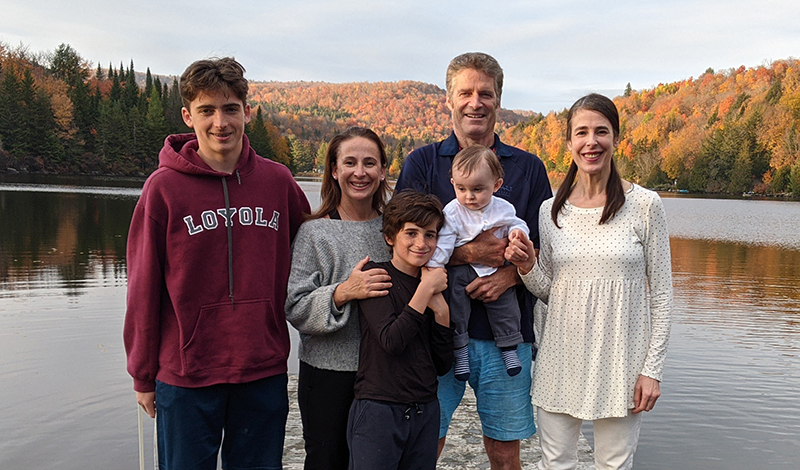
Gazing upon Kevin, who bears such a striking resemblance to my father, and seeing the joy and healing that he has brought with him into the world, I see the undeniable power of Nam-myoho-renge-kyo. I know with greater certainty that no matter how trying the times, there is always reason to smile, because the prayers of the practitioner of the Lotus Sutra will never go unanswered. In good times and bad, my heart cries out with my mentor: Nam-myoho-renge-kyo! Nam-myoho-renge-kyo! Or, as my father would say, Vincerò! Vincerò!
You are reading {{ meterCount }} of {{ meterMax }} free premium articles

